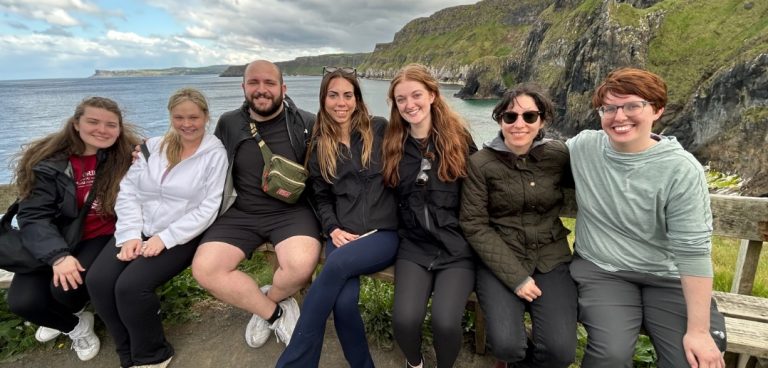What began as an invitation to Ireland from President Bill Clinton in 1995 has led to a 25-year-legacy of bringing Fordham Law students to the country to learn about conflict resolution in a region seeking peace.
“In its 25 years, over 700 U.S. law students have come to Belfast, and the program has served as a witness to the extraordinary transition Northern Ireland has undergone since 2001,” said current Program Director and Professor Michael Martin ’92. “Students report making lifelong friends during the program and developing a rich understanding of what makes the Northern Ireland project of peace so complicated and yet so important.”
Law students not only get the opportunity to study conflict in an international setting, they also get to explore Ireland’s green, rolling hills and its dynamic culture. In addition to lectures, panels, and networking dinners, students also take part in local hikes and trips to see the country.
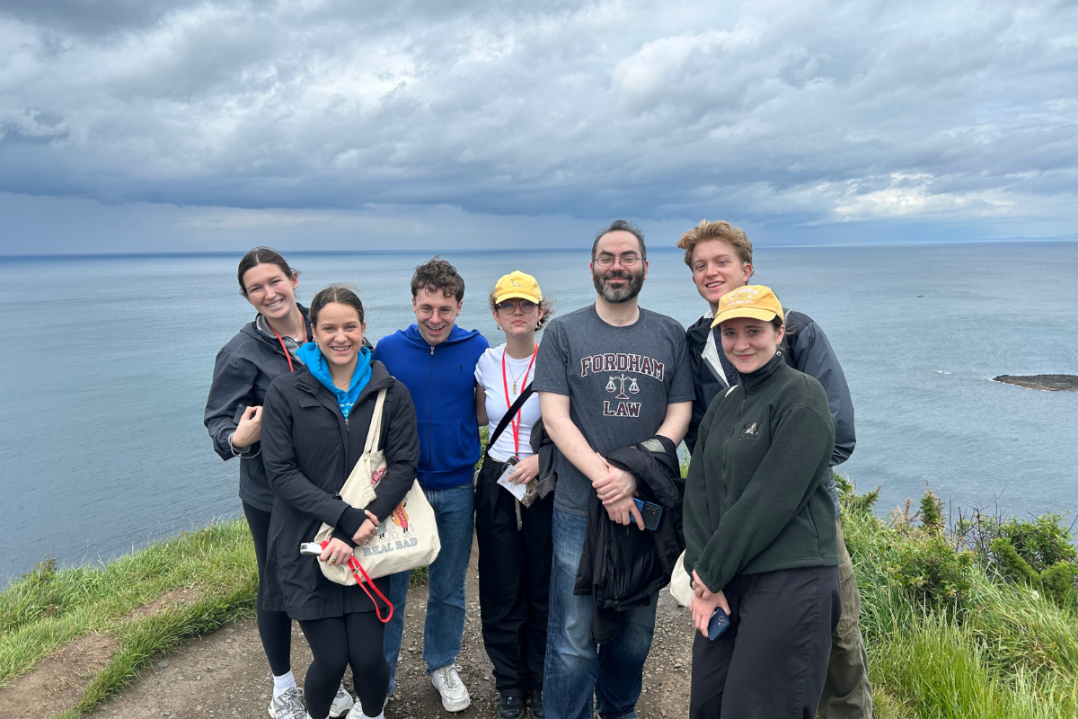
The two-week program is a partnership between Fordham Law and the University College Dublin (UCD) and Queen’s University in Belfast (QUB). Students take courses, engage with local government leaders, and explore the local culture while learning about Northern Ireland’s history of sectarian strife.
The idea for the program began in 1995, when Dean Emeritus and Norris Professor of Law John Feerick FCRH ’58, LAW ’61 was invited by President Bill Clinton to Northern Ireland as part of an initiative to invest in the region.
“I saw the summer law program, a first of its kind for our Law School, as an opportunity for students to learn about the culture and traditions of Northern Ireland and the Republic of Ireland and the efforts and steps then underway to develop a more peaceful Ireland after adoption of the the Good Friday Agreement in 1998,” said Feerick. “The opportunity to experience the aftermath of the conflict in both Belfast and Dublin broadened student’s understanding of the nature of conflict. By collaborating with institutions of academic excellence, and different histories, students would greatly benefit in their learning of handling conflicts and other subjects, while meeting and making friends in both societies.”
The program was established in 2001, just three years after the Good Friday Agreement brought an end to the decades-long sectarian armed conflict between British loyalists and Irish nationalists in Northern Ireland. Every year since, Fordham Law has brought dozens of students to learn the law and understand the complexities of international law and conflict resolution firsthand.
“The most rewarding part of the program thus far has been the dinners at University College Dublin and Queen’s University,” said Natalia Brown ’27, who studied in Ireland this summer. “The program creators—including and especially Professor Mike Martin—connect students with the biggest political figures in Northern Ireland and the Republic of Ireland. Getting to meet and network with these figures was fascinating and provided critical insights into the political sphere of Northern Ireland.”
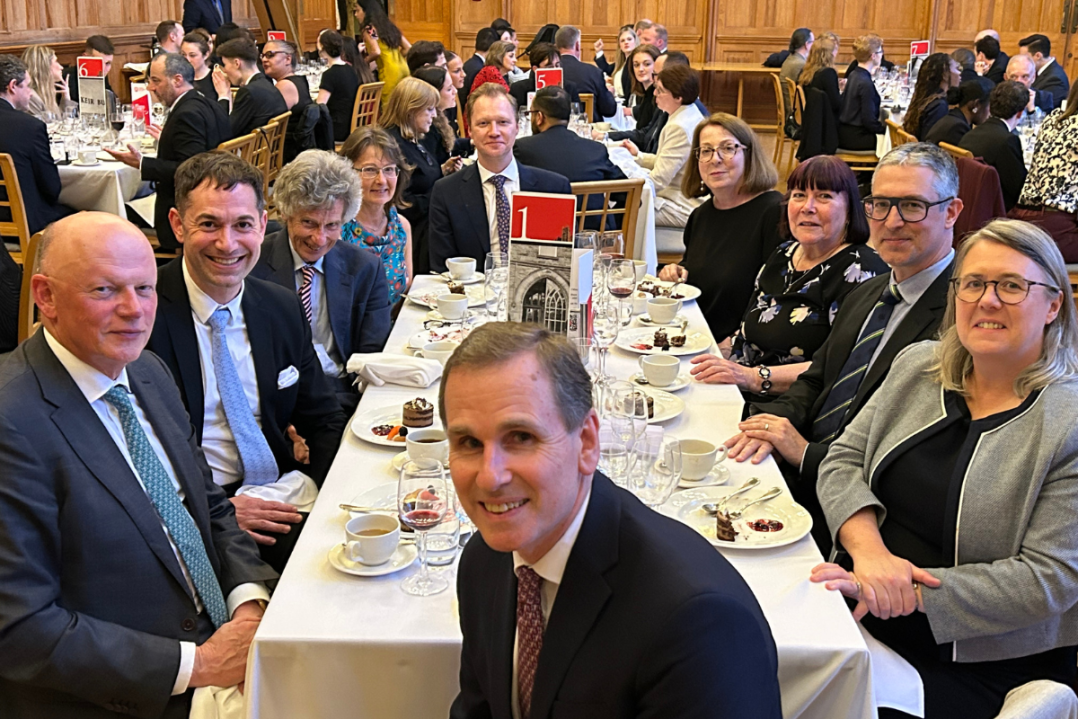
“It was remarkable that we had the deans of the schools and chief justices of both jurisdictions, as well as the attorney general of Northern Ireland and many of the QUB and UCD professors who had participated over the years, come together for a fantastic night at QUB’s Great Hall,” said Martin. “There was much praise for Dean Feerick and the other schools’ deans who had the courage and conviction to begin and maintain the Program over the years.”
Over the years, students have also had the chance to attend lectures by Irish Supreme Court justices and other leaders of the bench and bar, panel discussions and receptions with legal practitioners in both Northern Ireland and the Republic of Ireland, an introduction to the political and legal landscape of the North, and debates with leading figures in all the major political parties of Northern Ireland.
This summer’s courses included Human Rights and International Conflict Resolution: A Northern Ireland Perspective, Introduction to Intellectual Property: A Global Perspective, and International Criminal Law. The courses are mostly co-taught by professors from UCD, QUB, and Fordham Law, including Associate Dean Ron Lazebnik.
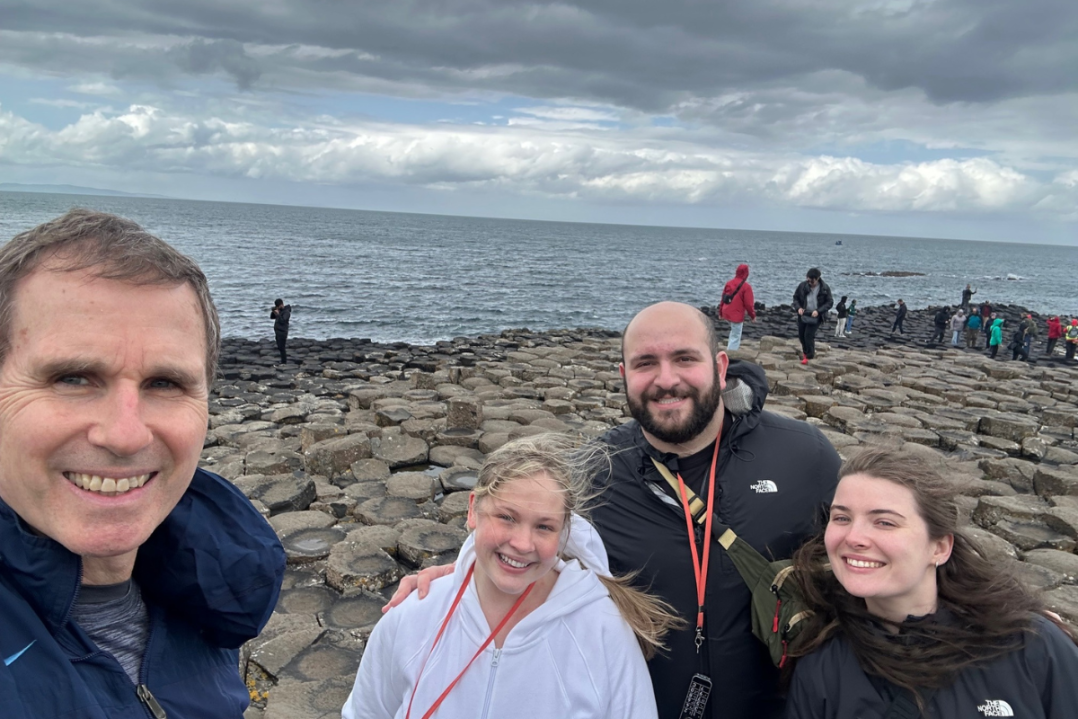
This summer also continued the tradition of Fordham Law students doing externships in Belfast and Dublin. Since 2010, Program students have externed at the Irish Supreme Court, Court of Appeal, and High Court, the Chief Justice of Northern Ireland, the Attorney General of Northern Ireland, the NI Assembly, the NI Public Prosecution Service, the UK Crown Solicitor’s Office, the Irish Law Reform Commission, the NI Children and Youth Commission, the NI Parades Commission, the NI Victims Commission, the NI Equality Commission, the NI Human Rights Commission, the Irish Human Rights & Equality Commission, the Irish Disclosures Tribunal, the NI Departmental Solicitor’s Office, the NI Police Ombudsman, the Irish Ombudsman, the Irish Department of Jobs, Enterprise and Innovation (DJEI), the law firms of A&L Goodbody and KRW, and non-governmental organizations such as Public Litigation Support of NI, Amnesty International Dublin, the Immigrant Council of Ireland, the Irish Refugee Council, Migrant Rights Centre Ireland, the NI Children’s Law Centre, and the NI Law Centre. This summer, 17 Fordham Law students remained in Dublin and Belfast after classes to take part in externships.
At the Fordham Law School Ireland Program 25th Anniversary Dinner at QUB, the Lady Chief Justice Siobhan Roisin Keegan said, “The excellent Fordham program is one which my predecessors and I have been enthusiastic about facilitating over the years on account of the unquestionable value which it clearly offers.” She continued, “Such an opportunity, I believe, gives the participant a unique and meaningfully comparative insight which, also importantly allows the participant to return to her/his home jurisdiction with fresh eyes and a deepened appreciation and understanding of its jurisprudential foundations—its underpinning principles and how it functions; and that is something that can surely only make a person a better, more rounded lawyer.”
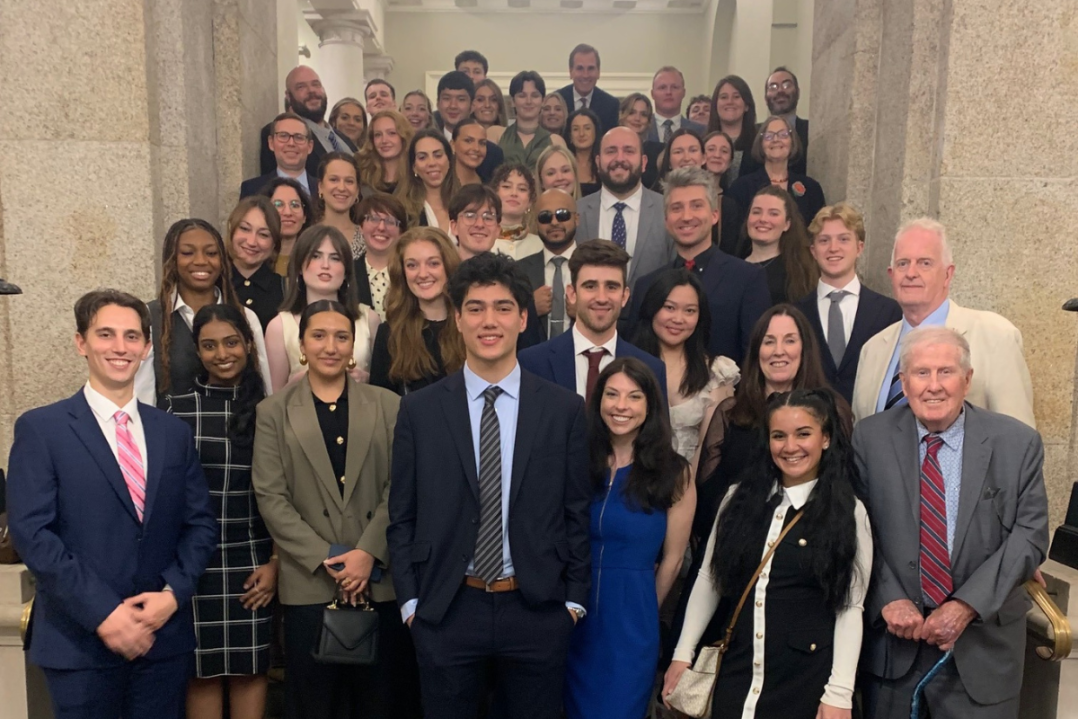
“This has been one of the most rewarding and educational experiences I have ever had,” continued Brown. “Though the days are busy, there is not a moment that feels tiring or uninteresting. The creators of this program truly care about the students and their experiences here in Ireland, which makes the program that much more special.”

